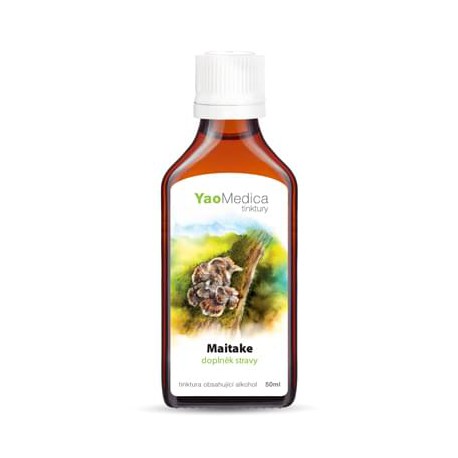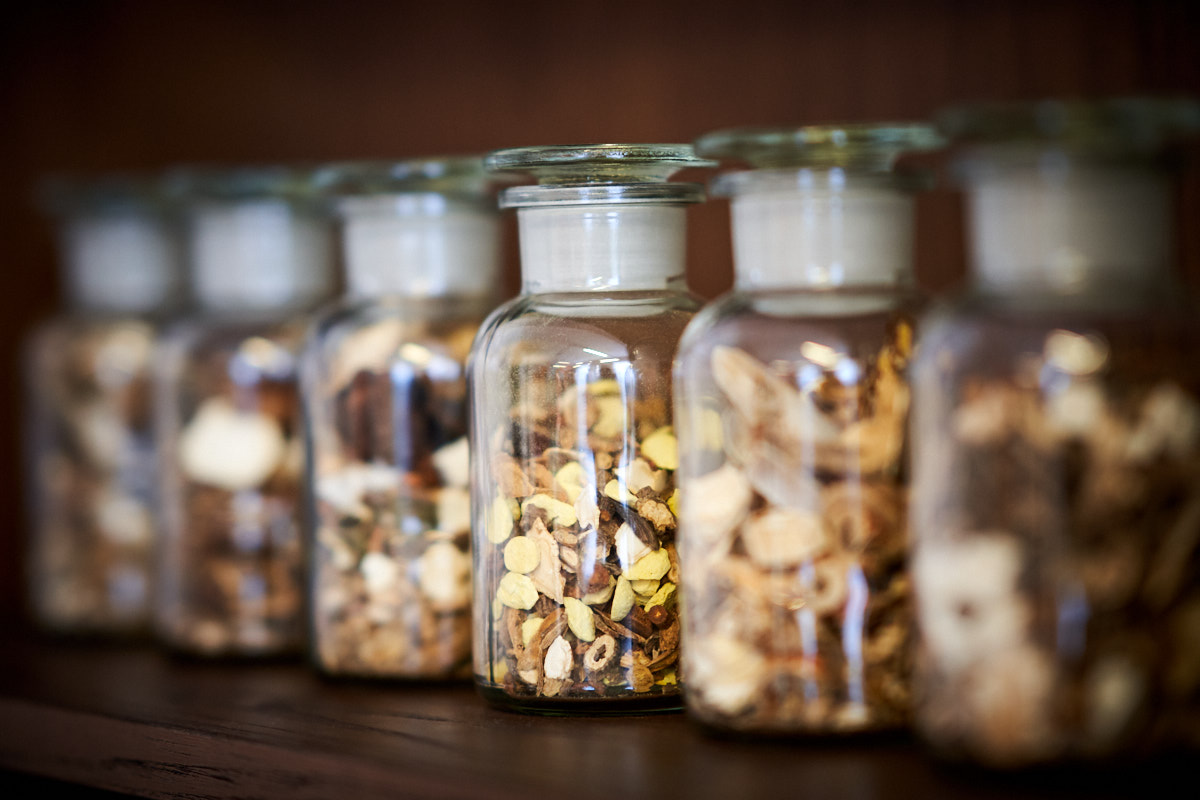








Type: diet supplement
Based on the recipe: Maitake
Ingredients: Maitake
Volume: 50 ml
In stock
In stock
Last items
Out of stock
Sold out
14 days
to return purchases
Free delivery
for orders above 350 zł
The "Maitake" tincture is based on the Maitake mushroom, also known as Hen of the Woods. In Chinese medicine, it was used to support metabolism and circulation. Descriptions of Maitake are found in sources from the Han Dynasty (206-210 AD) and in the work of Shen Nong Ben Cao Jing. For women, it is used to support the treatment of breast cancer and weakened functioning of the bladder. This is called a "protective" fungus for the elderly as it helps to strengthen the Kidneys and Liver. Additionally, Maitake is used in such ailments as: edema, urinary incontinence, ascites, obesity, damp build-up and hemorrhoids.
- Strengthens the immune system
- Supports metabolism
- Supports the proper functioning of the circulatory system
- Supports the functioning of the bladder
- Replenishes Pi (Spleen) and its Qi
- Drains Shi (Damp)
- Strengthens Kidneys Shen and Gan (Liver)
- Purifies Re (Heat)
- Soothes Shen Spirit
Yao means "medicinal plant", which may be not only a herb, mushroom, but also a mineral or a clam. In Traditional Chinese Medicine, herbs are most often composed in a way to interact and complement each other, bringing the desired effects.
There are several methods of processing Yao in Chinese phytotherapy. The most common is decoction, boiling the herbs for about 20 minutes. The second form are wan tablets, i.e. extruding the raw material and pressing it into small balls. Another form are tinctures, called "medicinal wines" in ancient China, equally popular form of processing Yao by the use of alcohol.
The use of alcohol in the production of tinctures helps to better extract the active ingredients from individual Yao and supports the absorption in the human body. It has been proven that alcohol causes the release of more active ingredients than in the forms of decoctions or baths.
Thanks to Yang nature of alcohol, it is very moving and therefore affects the blood circulation, helps to relax muscles, joints and general tension in the body. In combination with herbs, it supports overall vitality and soothes painful conditions.
water, alcohol
Maitake - hen of the woods, fruiting bodies - Grifola frondosa - 38.3 g
The YaoMedica alcohol tinctures are based on the highest quality Chinese mushrooms and herbs that provide maximum effectiveness. In the first stage of production, the dried herbs and mushrooms are ground into a fine powder, and then macerated in 50% alcohol for up to one month. The macerated extract is dynamised every day so it can unleash its full potential. Once the tinctures are ready, they are not diluted further. This makes them keep all properties.

Shake the tincture before use. Slight turbidity is a natural process. One package contains approximately 1100 drops.It is recommended to consult a doctor or a traditional Chinese medicine therapist before using the tincture. Prophylactic, basic daily dose is 1 drop per 1 kg of body weight. The portion should be divided into two parts: morning and evening. The tincture can be used on an empty stomach, at least 30 minutes before or 1 hour after a meal. The product can be poured with hot water - this will evaporate alcohol, which is a suitable procedure for drivers or children.

The first records of the use of herbal tinctures were found on bones from the Shang Dynasty (1765 - 1122 BC). They have been recognized as the oldest herbal recipe in China. Information on herbal tinctures can also be found in the works of masters such as Zhang Zhong Jing, who used alcohol in several of his famous recipes, or Master Sun Si Miao, who used over 80 types of tinctures to treat his patients.

The product is not intended for children under 3 years of age, pregnant women and breastfeeding women. Do not exceed the recommended daily dose. Store in a dry place out of the reach of children.
The product does not contain ephedrine, caffeine, gluten, preservatives, dyes or sugar.
Traditional Chinese Medicine (TCM) terms are capitalized and do not mean the same as in Western nomenclature. For example, in TCM, "Spleen" is not an anatomical organ, as in Western medicine, but a functional circuit.
Czech Republic
